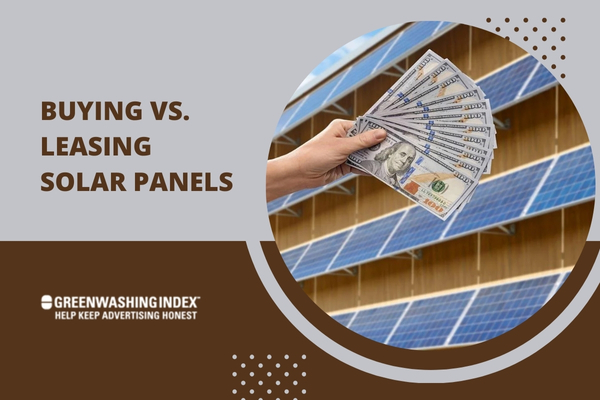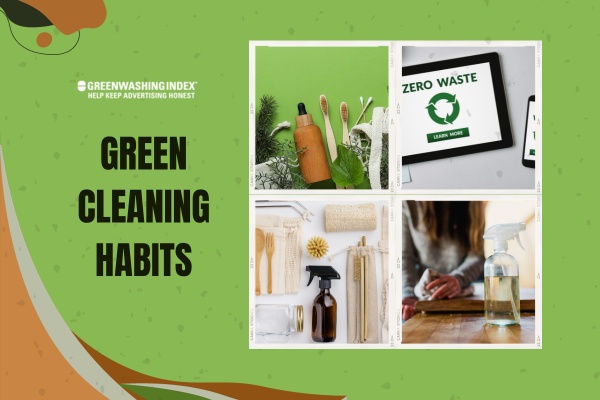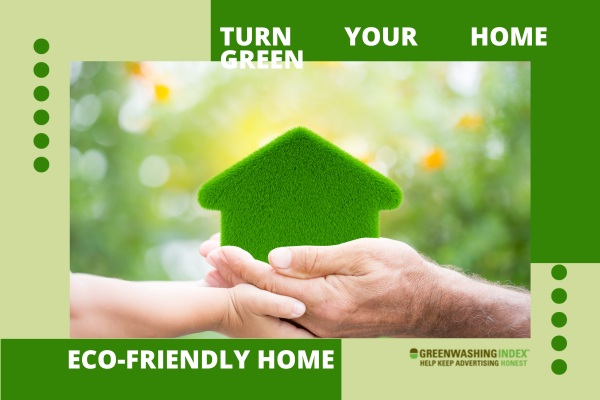When looking at ways to harness the sun’s power, many folks scratch their heads over buying vs. leasing solar panels. It’s a big decision – kind of like choosing between buying a car or leasing one. Imagine cutting down on electricity bills and helping keep our planet green! But there’s more to it, right?
Should you own those shiny panels on your roof or just borrow them for a while? Let me help clear up the fog! Making this choice isn’t just about today’s costs; it’s about how those numbers add up in your future. When you buy solar panels, they’re all yours from day one.
You can enjoy lower energy bills and even get some money back from government tax incentives. Over time, your investment pays off and then starts saving you cash for years to come – sweet! On the flip side, leasing means less cash upfront but also fewer benefits long-term. You don’t own them, which means no tax breaks and a bit of extra paperwork if you sell your home.
Deciding Your Solar Journey
When it comes to using the sun’s power for my home, there are two main paths I can take: buying solar panels or leasing them. Each way has its pros and cons, and choosing which one is best depends on my situation and goals.
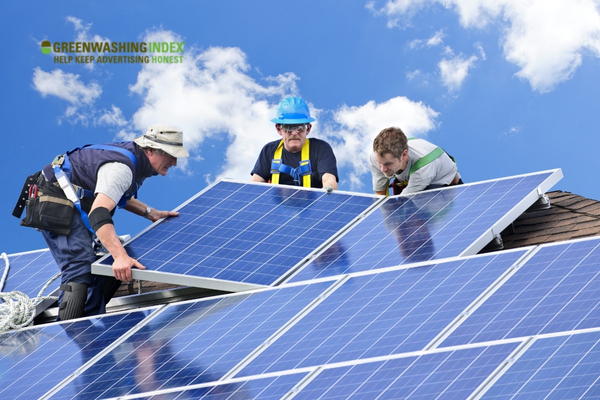
Buying solar panels means I pay upfront for the equipment and own it. On the other hand, leasing solar panels means I pay a company a monthly fee to use their solar panels. They install them on my roof, and they take care of most maintenance issues.
Here’s a closer look at what each option looks like:
- Buying Solar Panels
- Long-Term Savings: When I buy, any savings from lower electric bills belong to me because I own the system.
- Increased Home Value: Homes with owned solar panel systems can sell for more.
- Tax Credits & Incentives: Typically, there are tax credits available that help lessen the initial cost.
- Maintenance Responsibility: Since they’re mine, I need to handle any repairs or upkeep.
- Break-Even Point: It may take several years before the savings cover the cost of investment.
- Leasing Solar Panels
- Low Upfront Costs: Often zero down payment—just regular payments that could be less than traditional energy costs.
- No Maintenance Worries: The leasing company usually takes care of repairs since they own the system.
- No Long-Term Energy Savings Benefits: While I do save month-to-month on energy costs during my lease term, in most cases, long-term savings aren’t as high compared to owning them outright.
- Contract Terms: Contracts can be long (usually around 20 years), and if I sell my house, transferring or canceling it can be tricky.
Remember that whichever path you choose will influence not just your finances today but how you engage with sustainable power in future years. Carefully weigh both options in light of your individual circumstances before making a decision on this impactful journey toward harnessing the energy of the sun.
Also Read: Solar Batteries Essentials: Top Tips for Savvy Shoppers!
Buying vs. Leasing Solar Panels: The Initial Considerations
When it comes time to choose how to get solar panels, you might ask yourself: should I buy or lease them? This is a big decision. First, let’s look at what you need to think about when comparing buying vs. leasing solar panels.
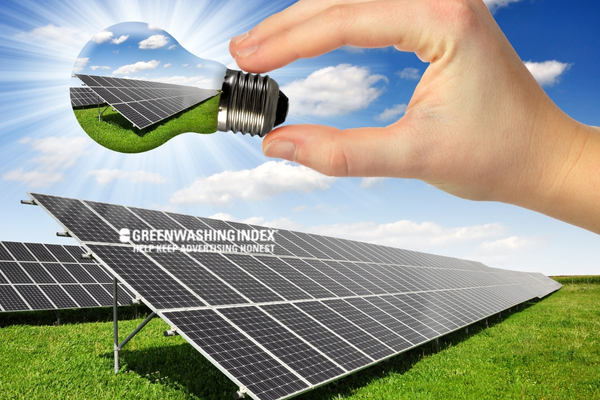
Understanding the Costs and Benefits
The biggest difference between buying and leasing solar panels has to do with money—both what you will pay at the start and what you can gain over time.
Buying Solar Panels:
If you decide to buy the solar panels, it means paying more money upfront. Think of it as buying a car; you pay for the whole thing once, but then it’s yours for good. This larger payment at the beginning can be tough for some folks’ wallets. However, owning your own panels means all the power they make is yours for free after that—and this advantage grows with each year as electricity prices tend to go up.
Also, there are some sweet deals called ‘tax credits’ that help bring down how much money actually leaves your pocket when buying them outright. And once those solar panels are on your roof—they’re adding value to your house!
Leasing Solar Panels:
Now, let’s talk about leasing—this is kind of like renting an apartment instead of buying a house. Leasing involves little or no initial cost but includes a monthly fee for using the equipment (the solar panels). The company that owns them takes care of any fixes or upkeep during your lease contract—a plus if dealing with maintenance isn’t your cup of tea.
But there’s a flip side: since you don’t own the panels, all those potential savings on electricity aren’t entirely yours; part goes back to the leasing company in lease payments. Plus, you won’t get any tax benefits since those are only available if you buy them outright.
To put it simply:
- Buying = High upfront cost + long-term savings + tax credits + increased home value.
- Leasing = Low/No upfront cost + monthly payments + less worry about upkeep – fewer overall savings – no tax advantages.
So when deciding between buying vs. leasing solar panels, consider how much cash you have in hand now against potential savings in years ahead—not forgetting other benefits like raising your home’s worth or making things easy by having someone else handle repairs.
Remember these key points while thinking this over:
- Your budget today
- Your long-term financial goals
- Whether getting a little help from tax breaks sounds good
- How much work do you want to put into maintaining everything?
Each choice has its pros and cons—it just depends on what fits best with your life, needs, and dreams for tomorrow’s sunny days!
Also Read: Solar Power Basics: Unlock Clean Energy Mysteries!
The Financial Implications of Buying vs. Leasing Solar Panels
When you’re thinking about getting solar panels, you’ve got to figure out if it’s better for your wallet to buy them or lease them. Let’s dive deep into these options.
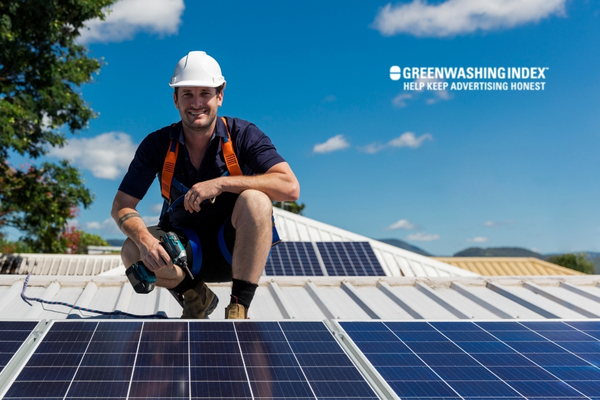
Evaluating Upfront Investments
The moment you pick between buying or leasing, your pocket feels it right away. Let’s see how that works:
- Buying Solar Panels:
- You pay a lot at the start. This includes the cost of the panels and getting them installed.
- It might seem scary to pay so much at once, but this is just a one-time thing.
- Sometimes, you can get help with these costs from loans that are made just for solar stuff.
- Leasing Solar Panels:
- Here, you don’t have to pay much to begin with.
- Think of it like renting. You pay a fixed amount every month.
- No stress about huge upfront costs!
When choosing whether to buy or lease solar panels, consider how much money you can spend now. Do you have enough saved up? Or would monthly payments be better for your budget?
Calculating Long-Term Payoffs
Now, let’s talk about what has happened with your money over the years.
- Buying Solar Panels:
- Over time, you save money on your electric bills because the sunlight is free!
- There might be tax breaks and other sweet deals from the government for buying solar panels.
- Once they’re paid off, all that sunshine power basically costs nothing.
- Leasing Solar Panels:
- You’ll still save on electricity since leasing usually comes with lower energy rates.
- But those tax incentives? They go to the company leasing the panels to you, not directly in your pocket.
– At the end of the lease contract, if there’s no option for purchase included in some lease agreements, then those savings can disappear.
When looking at long-term returns:
- Add up all savings from lower energy bills over time.
- Subtract what it costs upfront (or what you’ll have paid by then if leasing).
- Don’t forget those possible tax breaks if buying!
By figuring out these sums using numbers specific to Buying vs Leasing Solar Panels scenarios and incentives in your area, you can make a good choice based on hard facts rather than just guessing.
Also Read: Solar Panel Lifespan Secrets: Maximize Your Investment!
Ownership Aspects of Buying vs. Leasing Solar Panels
When it comes time to decide between buying vs. leasing solar panels, one of the biggest points to consider is who actually owns the solar panels. This can have a big impact on your experience with solar energy.
Who Holds the Power? (Ownership)
When you buy solar panels:
- You are the owner.
- The solar panels are yours once you pay for them.
- They belong to your home, and they add value to it as an improvement.
In contrast, when you lease solar panels:
- A company owns them.
- You pay a fee to use them every month or year.
- They are not part of your home in the same way as something you own would be.
Here’s how that looks:
If You Buy:
- You Own Them: Think of buying like getting a puppy. Once you buy it, it’s all yours, no question about it.
- Value Goes Up: Just like a new kitchen makes your house worth more, so do owned solar panels.
- Sell Anytime: If one day you want to sell your house, those solar panels go along with it — and might make buyers happy.
If You Lease:
- Company Owns Them: It is more like renting an apartment; someone else owns it while you live there (or use the panels).
- No Extra Value: Since they’re not really yours, they don’t up your home’s worth on paper.
- Lease Stays With House: If selling time comes while under lease, new buyers need to agree on taking over that lease — which can be tricky!
Maintaining Your Investment
Understanding maintenance is key, too, when comparing buying vs. leasing because whoever owns those shiny panels is usually in charge of taking care of them.
For Buyers:
- It’s On You: Like most things one owns – if something breaks or needs routine care – that’s on the owner (that’s you!).
- Freedom To Choose: Want someone specific for repairs? Go right ahead — pick any service provider fitting your needs and budget.
Here’s what that involves:
- Clean Them: Keep those panels spotless for top power-making performance!
- Routine Checks: Regular checks help catch small issues before they become big problems.
But what if leasing?
For Leasers:
- Company Does It: Usually, peace of mind comes included with leases since the owning company tackles repairs and upkeep — remember, though, this doesn’t mean absolutely no effort from your side!
2. The Lease Terms Matter: Always look at that fine print; know what exactly ‘maintenance’ includes in a lease agreement – better safe than sorry!
A closer look:
- Worry Less? Often, companies monitor and maintain their units closely since, after all – they still own ‘em!
- Specific Agreements Determine Scope: Every lease is different, so ensure awareness about who will handle fallen branches or snow removal, among other possible needs.
Also Read: Solar Generator Insights: Can It Really Power Your Home?
Impact on Property Value and Freedom of Choice
The prospect of homeownership remains a foundational element in the pursuit of personal wealth and stability. The decision to own property can significantly impact an individual’s financial portfolio and long-term plans. Owning real estate not only provides a sense of personal achievement but also offers the potential for property value appreciation over time.
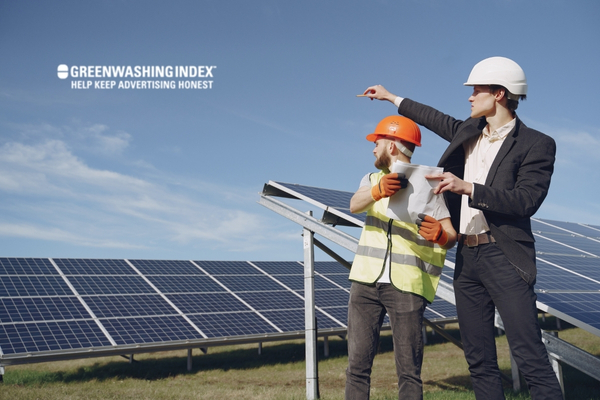
Enhancing Home Value with Ownership
When you think about buying solar panels, one big point is how they can make your house worth more. Here’s why:
- Long-Term Investment: Solar panels can be a smart money choice for the future. Just like fixing your kitchen or adding a room, solar panels are home improvements. They make your house more modern and attractive to buyers if you decide to sell.
- Lower Energy Bills: Everyone likes to save money, right? Solar panels help you save on electricity costs because the sun’s power is free once you’ve paid for the set-up.
- Eco-Friendly Feature: Now more than ever, people care about the earth. A home with solar panels shows that it’s helping, not hurting, our planet.
- Solar Incentives: Some places give you special benefits like tax credits when you own solar panels. It’s their way of saying thanks for being nice to the environment.
- No Leasing Contracts on Your House: Buying means they’re yours forever – no lease contracts tied to your house.
- Freedom from Rising Energy Costs: When energy prices go up, your cost stays the same because sunshine is always free.
- Increased Resale Value: Here’s a big one – studies show houses sell for more when they have solar panel systems in place.
So, in simple words, buying solar means a happier wallet when it comes time to pass on your keys to someone new.
Selecting Solar Solutions When Leasing or Buying
Now, let’s talk freedom – choosing exactly what kind of solar setup fits best on top of your roof!
- Types: Every home is different, and so are families’ needs – maybe you want just enough energy for a few appliances or maybe lots! When buying vs leasing solar panels, owning them gives you a chance to pick just the right ones that match your energy use.
- Brands: There are many brands out there – some are known for lasting long, while others might be better at making lots of power even on cloudy days.
- Control Over Choices: As an owner:
- You say yes or no to each part.
- Pick the service company that feels trustworthy and has good value.
- If technology gets better down the line, swap old parts out without asking permission from a leasing company.
If leasing:
- Options might be fewer – leasing companies often have certain kinds they offer and stick with those only.
- Changing things could get tricky; sometimes, rules are saying ‘no changes allowed’ until lease time ends.
Just remember: Buying vs leasing solar panels isn’t just about who owns shiny things on top of your house but also about being able to lead decisions that fit best for you!
Also Read: Solar Panels Investment: Is It Really Worth Your Money?
Legalities and Permissions When You Buy or Lease
When you think about getting solar panels for your home, it’s not just about deciding whether you want to buy them or lease them. There’s more to it – you have to consider the rules and hoops you’ll need to jump through, whether it’s for buying or leasing. Here, let’s talk about what kind of legal stuff and permissions we need to think about for both options.
Navigating Zoning Laws & HOA Regulations
Alright, zoning laws can be those tricky rules that tell you what you can and can’t do with your property. They’re different everywhere you go, so what applies in one place might not apply in another. So here’s what I’ve learned:
- Check Your Local Zoning Laws: Before doing anything else, find out what the local government says about putting up solar panels. Sometimes there could be limits on how high they can go or where exactly on your roof they can sit.
- Get the Right Permits: Most times when you buy solar panels, especially when installing them, permits are needed because it’s a big change to your house structure. This is serious stuff – make sure all permits are good to go before starting any work.
- Follow HOA Rules: If your home is part of a Homeowners Association (HOA), they could have their own set of rules about solar panels too! They might want the panels only in certain spots or expect them to look a certain way so that everything matches in the neighborhood.
- Leasing Might Have Different Rules: Now let’s talk leasing — when you lease panels, sometimes the company takes care of some things for you like getting permits which sounds easy right? But still, double-check! You should know exactly who is responsible for following all these legal bits and pieces.
- Inform Your Utility Company: Don’t forget this one — sometimes utilities have requirements or paperwork needed if you’re generating your own power with solar panels.
- Understand Exit Terms: For leasing specifically, if there was this idea maybe one day moving away from that spot would come up? Make sure understanding is clear on how getting out works — sometimes it’s easy but also sometimes lots gotta get done first!
Now all these points? They’re super important because no one wants trouble knocking at their door just after setting up shiny new solar panels! Whether buying or leasing solar panels dealing with these legal bits does take some extra steps but it keeps everything smooth sailing once those sunny days start saving money on bills!
Long-Term Commitment Perspective
When I think about buying vs. leasing solar panels, I see it as choosing between a long-term commitment and something more flexible. Buying solar panels is like getting married to them. It usually means these panels are mine for good, and I am in it for the long haul.
Breaking Down Lease Agreements
Now, let me talk about what leasing agreements look like. Imagine renting an apartment; that’s somewhat similar to leasing solar panels.
- Length of the Lease: Most times, a lease agreement for solar panels can last around 20 to 25 years. This is important because my energy needs could change over time, and so could technology or my living situation.
- Monthly Payments: Think of this like a subscription service — I pay a set amount every month to keep using the solar panels.
- Escalation Rate: Some contracts have what’s called an escalation rate, which means each year the monthly payment gets a little higher.
- Installation Costs: With leasing, I usually don’t have to worry about paying up front to put the panels on my roof; they often cover that part.
- Maintenance Responsibilities: One perk is that maintenance isn’t on me; if something goes wrong with the panels, they should fix them at no extra cost to me.
- Moving Out: If I decide to move before my lease is up, things can get tricky. Some agreements let me transfer the lease to the new homeowner or even move my leased system with me!
- Buyout Options: Sometimes, there’s an option included where I can buy out the rest of my lease early if I want ownership of those shiny energy-catchers all to myself sooner rather than later.
- End-of-Lease Terms: Approaching end-of-lease terms begins another adventure — do I return the equipment? Renew? Or maybe by then, there’ll be an upgrade waiting for me!
- Performance Guarantee: A lot of leases guarantee that those hip-looking green machines will perform as promised or better – giving peace of mind regarding what sort of results they’ll be achieving on top of my house.
- Insurance Requirements: Don’t forget this one — some companies will want their gear insured since, technically, it’s still theirs while you keep a watchful eye on your property.
Considering each detail carefully while looking at these points ensures no surprises bite me down the road when deciding whether buying vs leasing solar panels fits best with my life plans!
Also Read: How Much Energy Does A Solar Panel Produce? Find Now!
Maintenance Responsibilities
When it comes to powering your home, solar panels are a smart choice. But when you’re faced with the decision of buying vs. leasing solar panels, you might wonder: “Who will fix it?” Understanding who’s in charge of repairs and maintenance is key. Let’s dive into the details.
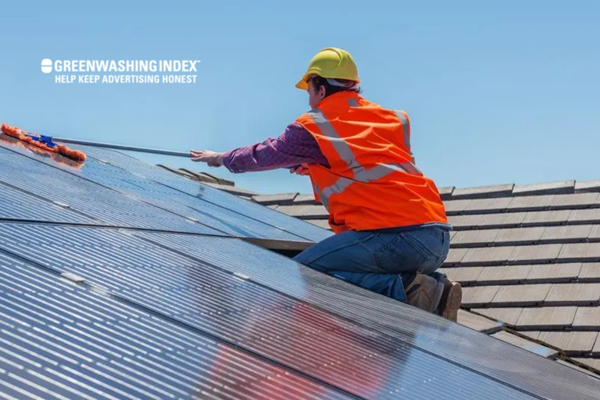
Who Will Fix It? Understanding Maintenance Obligations
If you buy solar panels:
- The Responsibility Is Yours: Once you purchase the solar panels, they are yours, which means any repairs or maintenance needed down the line will be on your shoulders.
- Warranty Coverage: Check if your solar panels come with a warranty. This warranty could cover certain repairs for a set period.
- Additional Costs: Remember that if something goes wrong outside the warranty period, fixing or maintaining your panels means extra costs for you.
- Freedom to Choose: On the bright side, owning your system allows you to pick who does the maintenance work – giving you control over costs and work quality.
If you lease solar panels:
- Less Worry for You: Leasing often means maintenance and repairs are not your headaches because most companies that lease out solar panels include this service.
- Part of Your Agreement: This no-hassle advantage should be clearly spelled out in your lease agreement, ensuring that someone else is contracted to handle any hiccups with the system.
- Regular Inspections Included: Companies might also offer regular check-ups as part of their package so small issues can be caught early before turning into big ones.
- Response Time Clauses: Lease contracts usually have terms about how quickly the leasing company will handle problems. Read these parts carefully; it’s good to know what to expect if something needs fixing.
So, when considering buying vs. leasing solar panels, think about how much personal responsibility and control over maintenance matters to you – both now and in years to come!
Conclusion
Deciding between buying vs. leasing solar panels is a significant choice that affects not only your finances but also your commitment levels and property control.
When you buy solar panels, you’re looking at an initial investment that might seem high but has long-term benefits like increased home value and potential energy savings. Leasing can offer a lower upfront cost while still granting access to renewable energy, but it comes with its own set of constraints, particularly when it comes to ownership and future flexibility.

